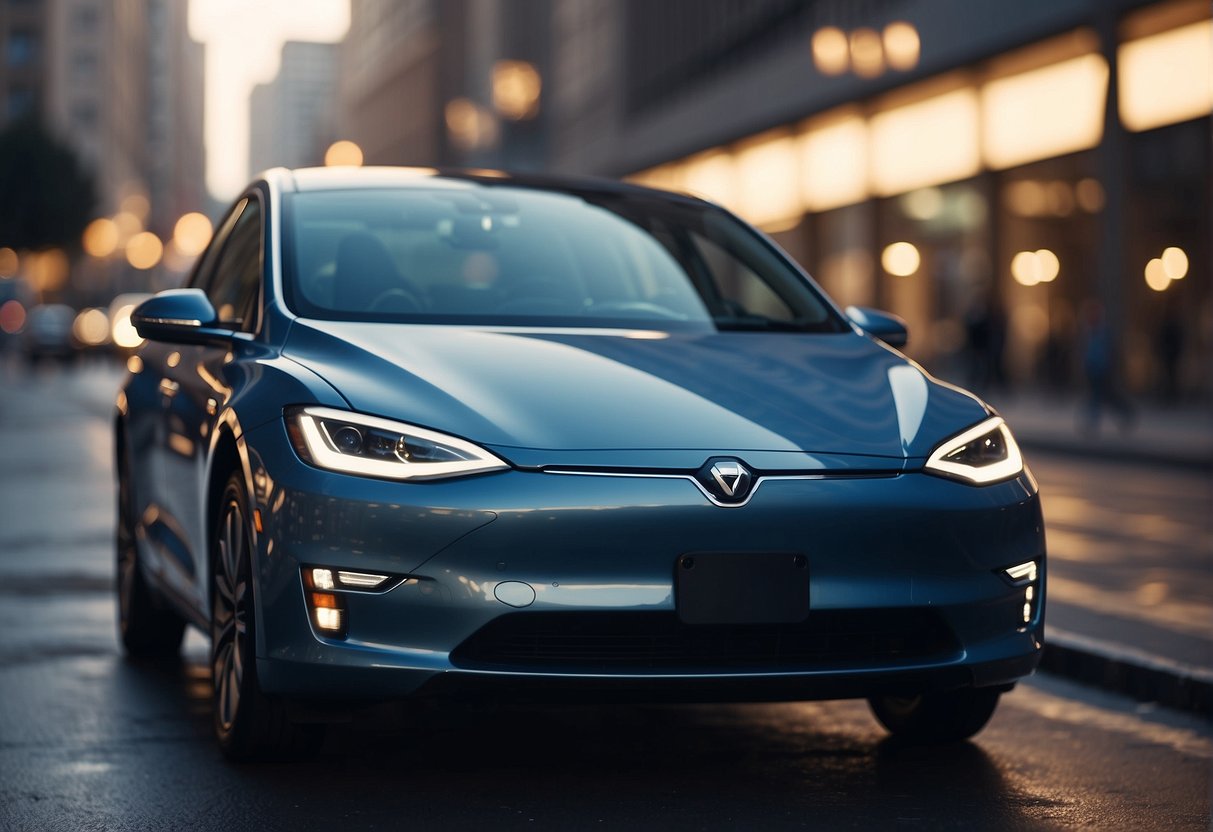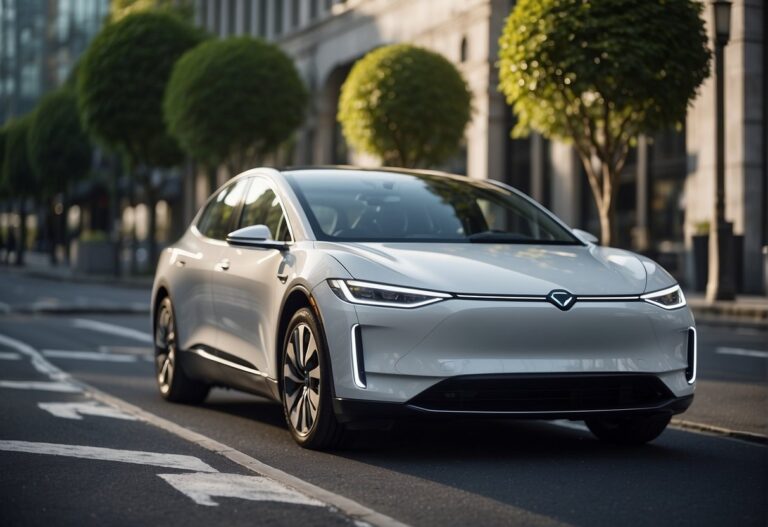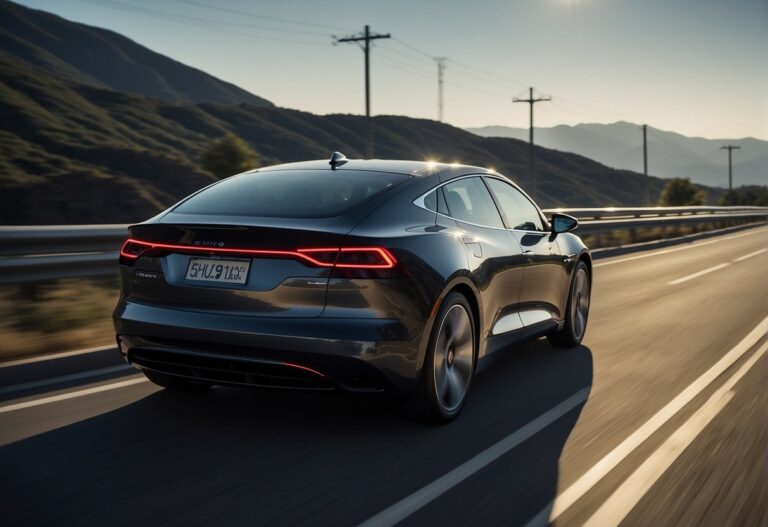Electric vehicles (EVs) are becoming increasingly popular as people look for ways to reduce their carbon footprint. However, as with any new technology, there are questions about how to navigate the world of electric vehicle insurance. While some insurance providers offer policies specifically designed for EVs, others may not be equipped to handle the unique needs of these vehicles.
One of the main considerations when it comes to electric car insurance is protection. EVs are expensive, and repairing or replacing them can be costly. As such, it’s important to ensure that your insurance policy provides adequate coverage in the event of an accident or theft. Additionally, because EVs have different components than traditional gas-powered vehicles, it’s important to make sure that your policy covers any potential damage to the battery or other electric components.
Another consideration when it comes to electric car insurance is mobility. Many EV owners use their vehicles for commuting or travel, and may require additional coverage for things like roadside assistance or rental car reimbursement. Additionally, because EVs require charging infrastructure, it’s important to make sure that your policy covers any damage to charging stations or other infrastructure that you may use. By understanding these unique needs and working with a knowledgeable insurance provider, EV owners can ensure that they have the protection and security they need to navigate the world of electric vehicle ownership with confidence.
Understanding Electric Vehicle Insurance
Electric vehicles are becoming more popular as people seek to reduce their carbon footprint and save money on fuel costs. However, electric vehicles come with unique insurance considerations that drivers must understand to ensure they have the right coverage.
Differences in EV Insurance Policies
Insurance policies for electric vehicles differ from those for traditional gas-powered cars. Electric vehicles have higher initial purchase prices, and their batteries and other components can be expensive to repair or replace. As a result, insurance premiums for electric vehicles tend to be higher than those for gas-powered cars.
EV insurance policies may also include coverage for charging stations and other unique features of electric vehicles. Drivers must ensure that they have the right coverage for their vehicle and usage patterns.
Factors Influencing EV Insurance Premiums
Several factors can influence the cost of insurance premiums for electric vehicles. These include the driver’s age and driving history, the type of electric vehicle, the battery range, and the safety features of the car.
Some insurance companies offer discounts for electric vehicles with advanced safety features, such as automatic emergency braking and lane departure warning systems. Drivers can also save money on insurance by choosing a higher deductible or by bundling their auto insurance with other types of insurance, such as home or life insurance.
Coverage Options for Electric Vehicles
Electric vehicle insurance policies typically include liability insurance, collision coverage, and comprehensive coverage. Liability insurance covers damage to other people’s property or injuries they sustain in an accident that is the driver’s fault. Collision coverage pays for repairs to the driver’s vehicle if they are in an accident, regardless of who is at fault. Comprehensive coverage covers damage to the vehicle caused by events such as theft, vandalism, or weather-related incidents.
Some insurance companies also offer battery coverage, which covers the cost of replacing the electric vehicle’s battery if it fails or is damaged. Drivers should carefully review their policy details to ensure they have the right coverage for their vehicle and usage patterns.
In conclusion, navigating the world of electric vehicle insurance can be challenging, but understanding the differences between policies, the factors that influence premiums, and the coverage options available can help drivers choose the right coverage for their vehicle and usage patterns.
Maximizing Benefits and Savings
Electric vehicles (EVs) are a great investment for those looking to reduce their carbon footprint and save money on gas. However, owning an EV also comes with a unique set of insurance considerations. Here are some tips on how to maximize benefits and savings when it comes to electric vehicle insurance.
Discounts and Incentives for EV Owners
Many insurance companies offer discounts and incentives for EV owners. Some of these discounts include safe driving discounts, bundle policies discounts, and discounts for owning an EV. Additionally, some states offer tax credits for purchasing an EV, which can help offset the cost of insurance.
Choosing the Right Insurance Company
When choosing an insurance company for your EV, it’s important to consider their experience with EVs. Look for an insurance company that specializes in electric vehicle insurance or has experience insuring EVs. Additionally, consider their customer service and any additional protection and assistance services they offer.
Additional Protection and Assistance Services
Some insurance companies offer additional protection and assistance services for EV owners. These services can include roadside assistance, charging infrastructure assistance, and peace of mind coverage for your EV’s battery and charging equipment. Be sure to ask your insurance company about these additional services when shopping for electric vehicle insurance.
By following these tips, EV owners can maximize their benefits and savings when it comes to insurance. Remember to also consider factors such as credit score and driving history when shopping for insurance. With the right insurance company and coverage, owning an EV can be both environmentally and financially rewarding.
Frequently Asked Questions
How does the cost of insuring an electric vehicle compare to a traditional gasoline vehicle?
The cost of insuring an electric vehicle (EV) is generally higher than that of a traditional gasoline vehicle. This is because the cost of repairing or replacing an EV is typically higher due to the specialized technology used in these vehicles. However, there are many factors that can influence the cost of insurance for an EV.
What factors influence the insurance premiums for electric cars?
The insurance premiums for electric cars are influenced by a number of factors, including the make and model of the vehicle, the age and driving history of the driver, the location of the driver, and the level of coverage selected. In addition, some insurance companies offer discounts for EV owners who adopt safe driving practices or who install safety features in their vehicles.
Are there specific insurance companies that specialize in electric vehicle coverage?
While there are no insurance companies that specialize exclusively in electric vehicle coverage, some insurance companies offer specialized policies for EV owners. These policies may include coverage for charging stations, battery replacement, and other unique features of electric vehicles.
What additional coverages should be considered for electric vehicles?
In addition to traditional auto insurance coverages such as liability, collision, and comprehensive coverage, EV owners may want to consider additional coverages such as roadside assistance, rental car reimbursement, and uninsured/underinsured motorist coverage.
How do government incentives and policies impact electric vehicle insurance rates?
Government incentives and policies can have a significant impact on electric vehicle insurance rates. For example, some states offer tax credits or other incentives for EV owners, which can reduce the cost of insurance. In addition, some states have implemented regulations that require insurance companies to offer discounts to EV owners.
What are the unique risks associated with insuring electric vehicles?
There are several unique risks associated with insuring electric vehicles, including the risk of battery failure or damage, the risk of fire or explosion, and the risk of cyber attacks targeting the vehicle’s software or data. As a result, it is important for EV owners to work with insurance companies that have experience insuring these types of vehicles and that offer specialized coverage for these risks.



